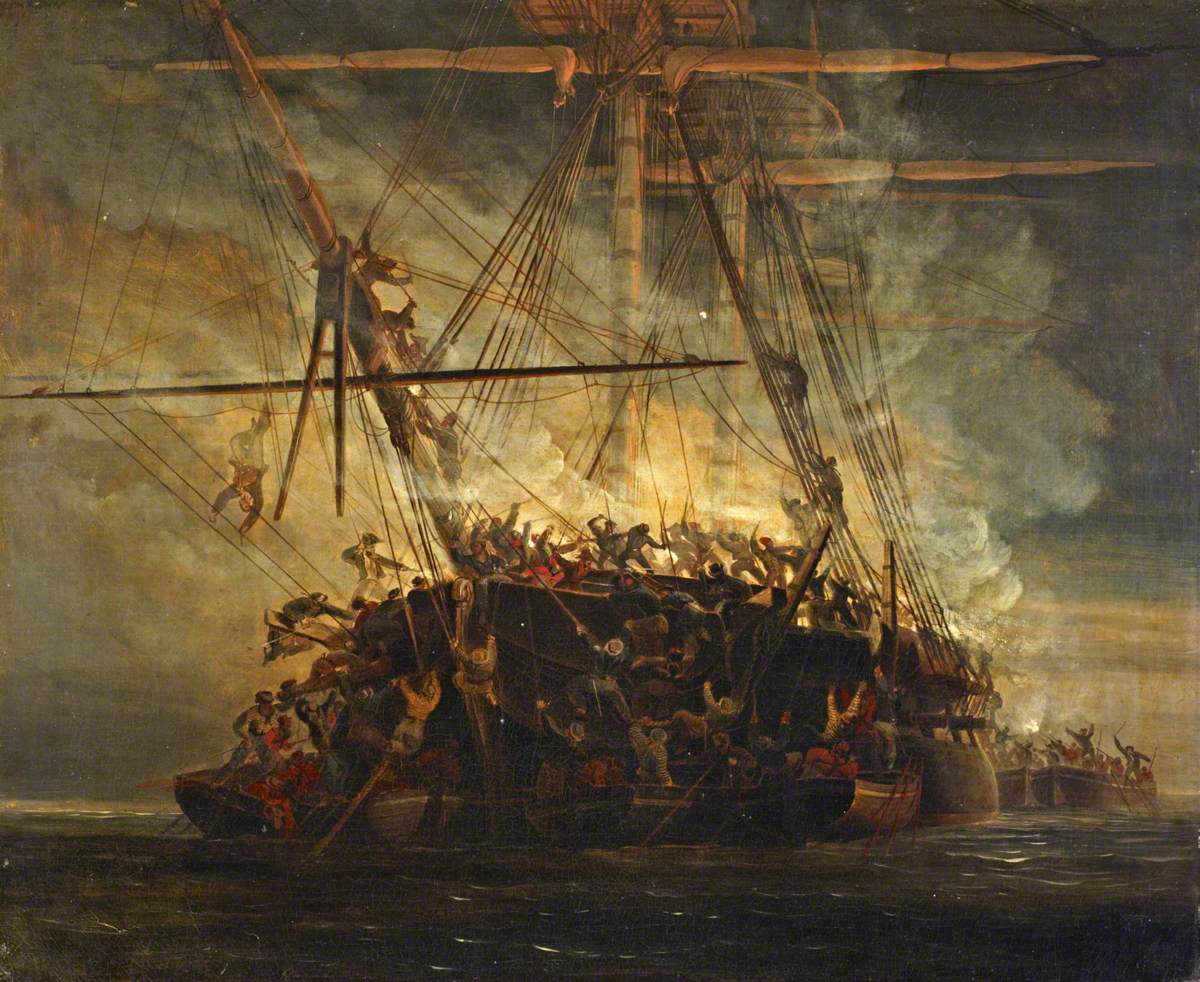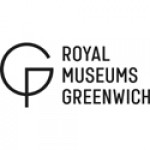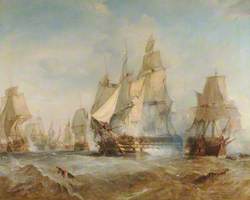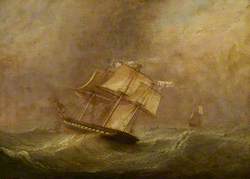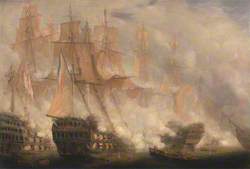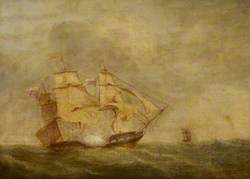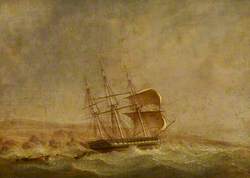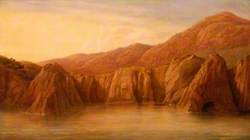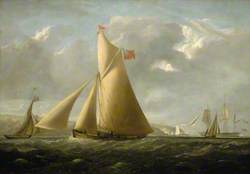How you can use this image
This image can be used for non-commercial research or private study purposes, and other UK exceptions to copyright permitted to users based in the United Kingdom under the Copyright, Designs and Patents Act 1988, as amended and revised. Any other type of use will need to be cleared with the rights holder(s).
Review the copyright credit lines that are located underneath the image, as these indicate who manages the copyright (©) within the artwork, and the photographic rights within the image.
The collection that owns the artwork may have more information on their own website about permitted uses and image licensing options.
Review our guidance pages which explain how you can reuse images, how to credit an image and how to find images in the public domain or with a Creative Commons licence available.
Notes
Add or edit a note on this artwork that only you can see. You can find notes again by going to the ‘Notes’ section of your account.
In the summer of 1801 three British frigates, ‘Doris’, ‘Beaulieu’ and ‘Uranie’, stationed off the French coast near Brest, were monitoring the movements of the French fleet. In July a French gunship-corvette, ‘Chevrette’ was discovered at anchor in Camaret Bay. The French believed this to be an impregnable position, but the British ships decided to slip her away from her moorings. On the night of 20 July, the boats of ‘Doris’ and ‘Beaulieu’ set out to achieve this. However they became separated, and some turned back. Those that did reach the ‘Chevrette’ waited until daybreak for the remaining boats, before realising that they had turned back and would not be coming to their aid. By daybreak the boats that had reached the ‘Chevrette’ were spotted and so the element of surprise was lost. Later that morning the ‘Chevrette’ moved closer to some heavy batteries, where she also embarked soldiers. That night the British boats regrouped and made a second attempt to cut out the ‘Chevrette’. Yet again some of the boats became separated. Nonetheless a lieutenant of the ‘Beaulieu’ decided to attack, even with a greatly depleted force of only nine boats instead of the original 15. They were spotted and fired on as they approached the ‘Chevrette’ but managed to board the vessel, despite fierce opposition from the French crew and soldiers on board. As the British had lost all their fire-arms they boarded with only swords. Despite these odds, in less than three minutes they brought down the Chevrette’s three topsails and courses. They had also managed to cut the cable so the ship began to drift out of the bay. As the ships drifted, the remaining British boats were able to join them and gained overall supremacy.
Title
Cutting Out the 'Chevrette', 21 July 1801
Date
early 19th C
Medium
oil on board
Measurements
H 63.5 x W 77.5 cm
Accession number
BHC0531
Work type
Painting
